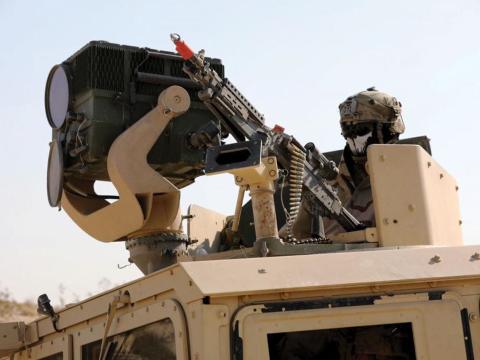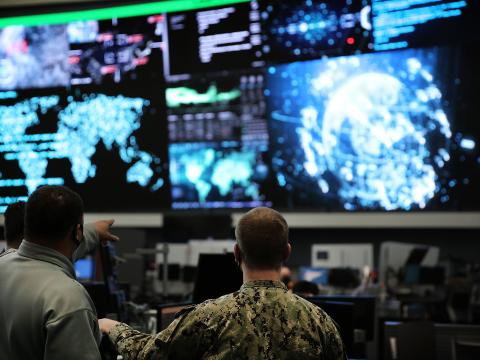Probably no other area is receiving more attention and more discussion in the global security community than cyberspace. The realm of cyberspace is so critical to every part of society that it finally has been recognized as both a major asset and a threat environment. It could have tremendous impact on defense as well as crucial industries such as finance, energy, water and others if denied to nations or companies. As a result, every nation is trying to define its roles and vulnerabilities in cyberspace, and alliances such as NATO are creating organizations and procedures to strengthen their position.
AFCEA will sponsor several key events this year on this subject. We just completed the Homeland Security Conference in Washington, D.C. In the United States, the Department of Homeland Security is responsible for coordinating cyber activities for U.S. federal agencies, for state and local governments, and for industry in the United States. Naturally, cyberspace was a primary subject of discussion at the Homeland Security Conference.
In late May in Omaha, Nebraska, AFCEA will work with the U.S. Strategic Command (STRATCOM) to present the second annual STRATCOM cyber event, which is essential because of the lead role played by STRATCOM in U.S. Defense Department cyberwarfare. The new U.S. Cyber Command, or CYBERCOM, is proposed to be established this year as a sub-unified command under STRATCOM. That proposal currently is in Congress for confirmation of the new command and its first commander. In addition, each of the U.S. military services is standing up a cyber command as a component command initially of STRATCOM, then later of CYBERCOM when it stands up. All of this fundamentally will change the way the United States conducts cyberwarfare, and that will make this year’s conference in Omaha an important element of the discussion. Members of industry and academia also will participate to discuss how they are responding to the increased requirements for support and solutions in this important defense initiative.
In July, AFCEA will support the NationalDefenseUniversity and the University of Singapore to conduct a two-day symposium in Singapore to highlight issues of regional cooperation in the Pacific. This will be a vital discussion that includes the major players in the Asia-Pacific region. Unlike Europe, where NATO and the European Union serve as coordinating bodies in this critical arena, the Asia-Pacific region has no all-encompassing structure to bring the players together. Cooperation of the willing is critical here, based on an understanding of mutual interests, if effective use of the Internet is interrupted.
In late October, we will run a two-day event, TechNet International, in London, where we will focus on cyber in the always important European/NATO environment. Much as in the United States, NATO is focusing a great deal on reexamining strategy going forward and the cyber role in that strategy. Organizational roles have been expanded to address key cyber issues. NATO leadership, key NATO agencies, national representatives and industry will be present at this event to provide a complete picture of European activity.
Finally, in December, AFCEA will conduct an interactive Solutions event in the Washington, D.C., area that focuses on cyberspace. As with all our Solutions events, people can participate in person or online. The focus will be on key technology and process issues in cyber, along with solutions available to address these topics. With all the cyber activity occurring this year, there will be much to address at this event.
Many of the AFCEA chapters around the world additionally are featuring cyber as part of events they are holding. These events focus on national or regional issues and organizations, and they feature a level of local detail that could not be provided at the events described above.
The bottom line is that everyone needs to be engaged in this dialogue. Where you choose to engage is dependent on your role and the government organizations with which you interface. I encourage you to look at the AFCEA Web site (www.afcea.org) under EVENTS for details on those events I have just described. Additionally, look at the appropriate chapter sites for relevant events being presented at the chapter level. You can reach these links through the AFCEA Web site.
Cyberspace is a global opportunity and challenge, and everyone needs to participate. Decide what is important to you and engage. Feel free to contact me if you are not sure what the right venues are for you.



